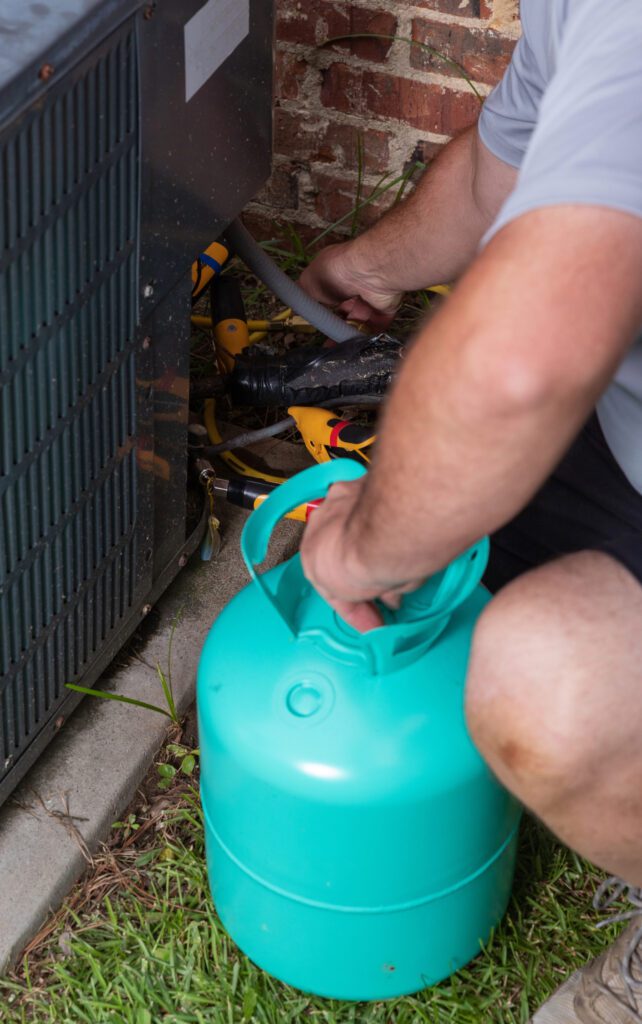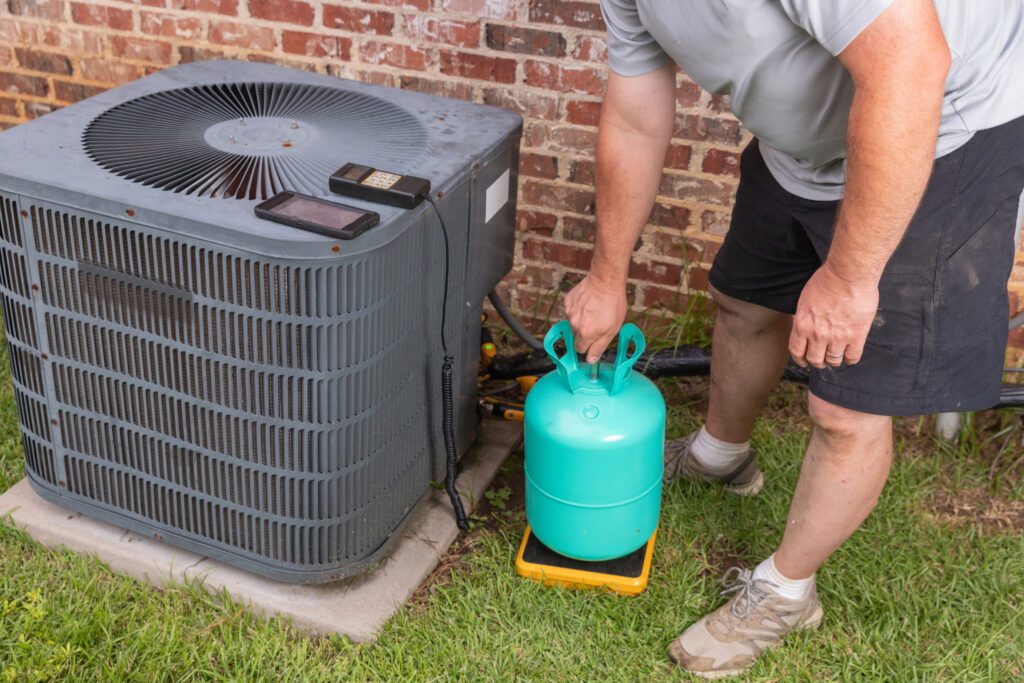As the global conversation around climate change and sustainability grows louder, many industries are reevaluating their operations to adhere to tighter environmental standards. The HVAC industry is at the forefront, particularly concerning the use of refrigerants. R-410A has recently caught the spotlight, leading to discussions about its potential phase-out. Newark-Heath Heating & Cooling wants to help you understand what this means for homeowners so they can be prepared for what to expect. Let’s get into it!

The Significance of Refrigerants in HVAC Systems
Refrigerants are vital chemical compounds in air conditioning and heat pump systems, enabling them to either cool or heat spaces by absorbing and expelling heat. The evolution of refrigerants in the HVAC industry has been driven by the need to balance energy efficiency with minimal environmental harm.
R-410A, a hydrofluorocarbon (HFC), was introduced as a replacement for older, ozone-depleting chlorofluorocarbons (CFCs) and hydrochlorofluorocarbons (HCFCs). While R-410A doesn’t harm the ozone layer, its high global warming potential (GWP) is raising environmental concerns, prompting discussions about phasing it out.
The Move Toward Greener Alternatives
The initiative to phase out HFCs like R-410A is largely propelled by global agreements aimed at reducing greenhouse gas emissions. A key example is The Kigali Amendment to the Montreal Protocol, established in 2016, which seeks to curb HFC use. For developed regions, including the United States and Europe, the goal is a 15-25% reduction based on baseline levels by the 2030s.
Future Outlook for R-410A
While a complete ban of R-410A by 2025 isn’t on the books yet, significant steps are being taken to reduce its usage:
- Regulatory Mandates: Stricter regulations on R-410A production and importation are being enforced in several countries. The European Union’s F-Gas Regulation and the United States Environmental Protection Agency’s phase-down strategies illustrate this shift.
- Industry Innovation: The HVAC industry is rapidly embracing alternatives with lower GWPs. Popular choices include R-32, R-454B, and R-466A, which are beginning to be used in new systems.
- Market Dynamics: As policies evolve, manufacturers are progressively shifting to these newer refrigerants. This transition is reshaping the market, prompting a shift towards systems that are compatible with less harmful refrigerants.
R-410A Alternatives
- R-32: With a GWP half that of R-410A and superior energy efficiency, R-32 is gaining acceptance, particularly in regions with stringent climate directives.
- R-454B: Known for its balanced attributes, R-454B offers even lower GWP and compatible operating pressures, easing the transition for manufacturers and consumers.
- R-466A (Solstice N41): Valued for its safety and efficiency, R-466A is non-flammable, providing a safer alternative for certain applications.
The Impact of Phasing Out R-410A
- For Manufacturers: The shift demands investment in research and development, as well as modifications in production to support the adoption of environmentally friendly refrigerants.
- For Consumers: In the short term, consumers may face increased costs for systems and services as the market adjusts. However, in the long run, the transition to more efficient refrigerants promises lower utility costs and reduced energy consumption, benefiting consumers.
- For the Environment: Moving away from high-GWP refrigerants like R-410A will likely yield positive environmental outcomes. By adopting refrigerants with lower environmental impacts, the HVAC industry contributes to the global effort against climate change.

As Newark-Heath Heating & Cooling observes the HVAC industry’s evolution under environmental pressures, the gradual phase-out of R-410A signifies a pivotal shift towards sustainable practices.
While 2025 may not mark its complete removal, the ongoing initiatives reflect the industry’s commitment to reducing greenhouse gas emissions and protecting our environment for future generations. If you have any more questions about your HVAC system’s refrigerant or suspect your own system is due for a refrigerant refill, also known as a “recharge,” please don’t hesitate to contact us. We’ll get you squared away!
Call Newark-Heath Heating & Cooling today at (740) 212-5849, or schedule an appointment now by clicking here!
More HVAC Refrigerant Information
Our goal is always to keep you informed as best as we can. Learn more about the role of HVAC refrigerants and their role here!






